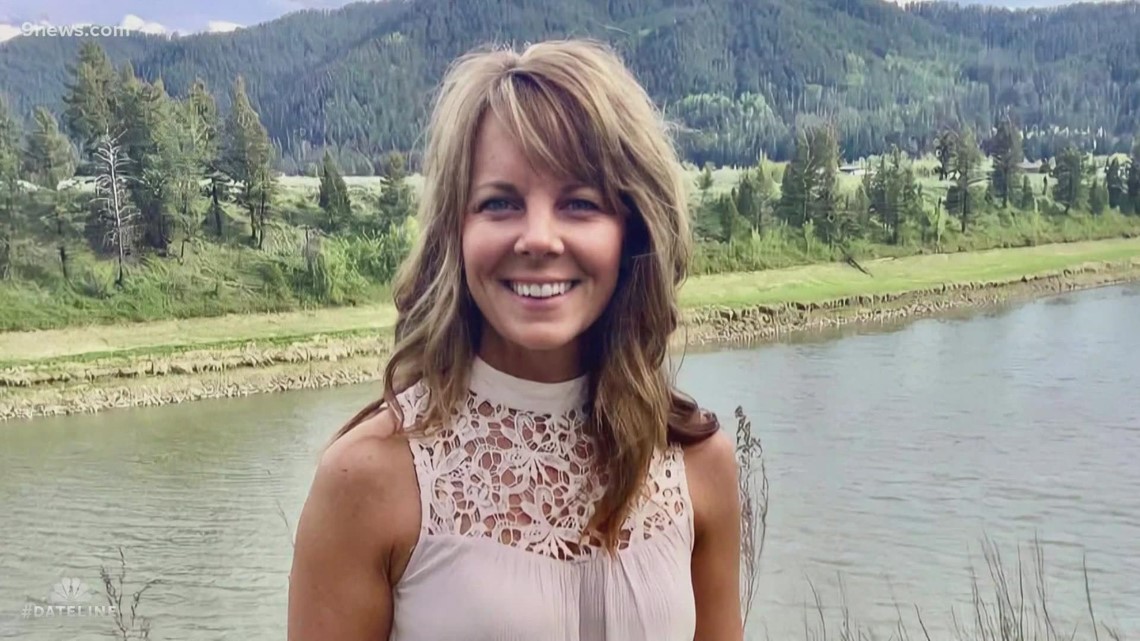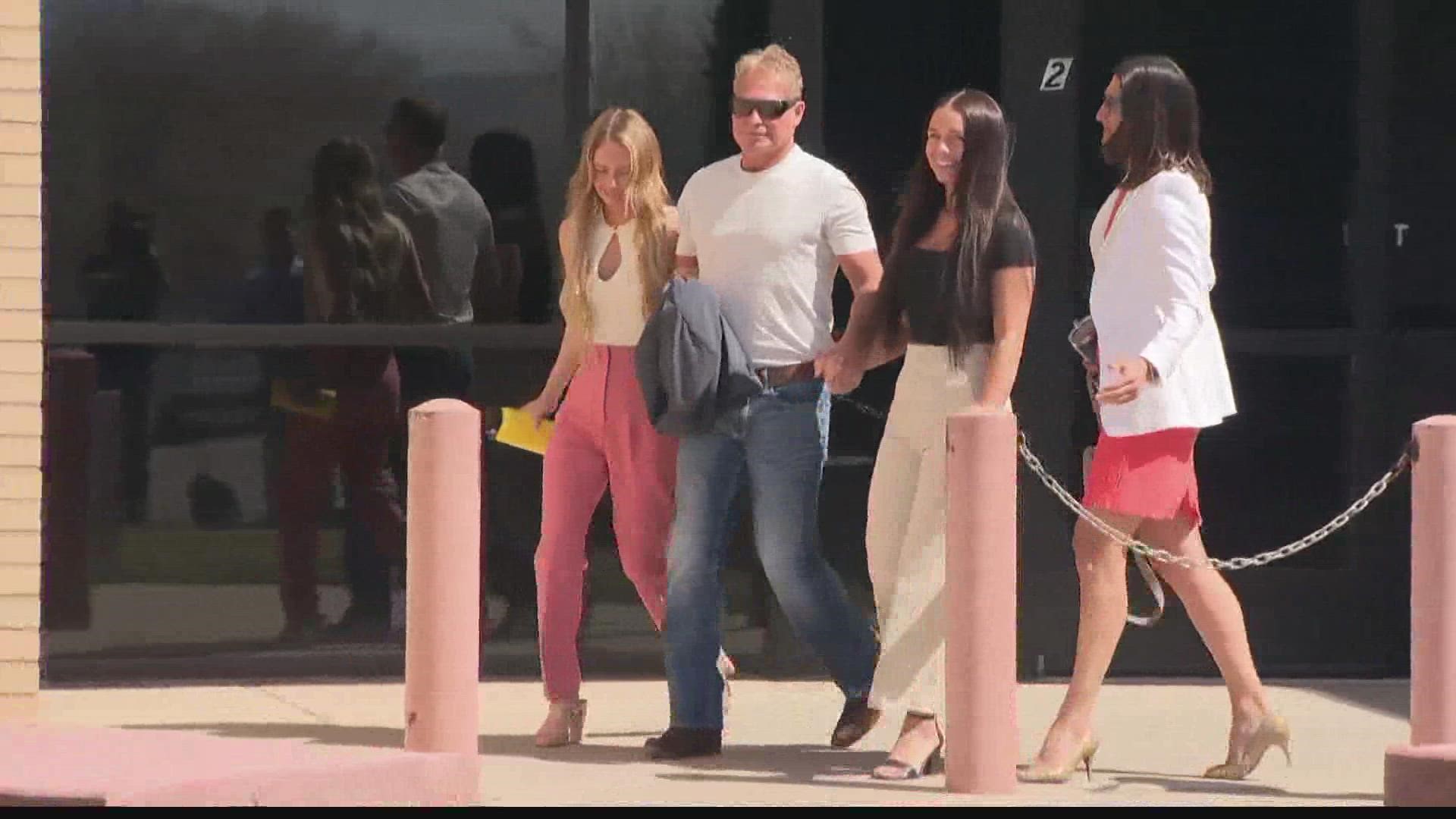FREMONT COUNTY, Colo. — Fremont County District Judge Ramsey Lama granted a motion filed Tuesday by prosecutors that asked to dismiss the murder case against Barry Morphew, who is charged with first-degree murder in connection with the May 2020 disappearance and presumed death of his wife Suzanne.
District Attorney Linda Stanley filed the motion that asked Lama to dismiss the case without prejudice, meaning charges could be filed again at a later date.
In court Tuesday morning, Morphew's defense team said they were reviewing options and might move to ask Ramsey to reject the motion and instead dismiss the case in a way that would not allow for new charges.
Ultimately Ramsey granted the prosecution's motion.
"They absolutely dismissed this case at this point because they knew they were going to lose this trial," said Barry Morphew's defense attorney Iris Eytan. "And Mr. Morphew was going to be acquitted and exonerated."
Prosecutors declined to comment when approached outside the courthouse following the hearing.
They said in their motion that they and law enforcement believe they're "close to the discovery" of Suzanne Morphew's body, but said they won't be able to complete searches ahead of the scheduled trial date due to weather and snowpack.
According to the motion, they've been focused on a "remote and mountainous" region near the Morphew residence that is currently covered in 5 feet of snow.


"Barry and his daughters are relieved, but they’re sad because they too want to know where Suzanne Morphew is," said Eytan. "Barry Morphew loves Suzanne Morphew. He loves her and he misses her and he wants to know where Suzanne Morphew is."
In court Tuesday, Morphew's daughter's and Suzanne's siblings spoke about the decision.
"We fully support this dismissal. We miss our mom dearly and know our dad didn't have anything to do with it," Morphew's daughter Mallory said.
"We want to move on with our lives and take time to heal," Morphew's daughter Macy said. "We hope to find out what really happened to our mom."
Suzanne's family members listening to the court proceedings virtually also said they agreed with the decision to dismiss charges.
"I think the dismissal is proper because more investigation needs to be done to find my sister," Suzanne's brother Andrew Moorman said.
"We're looking forward to finding our sister and bringing her home for a proper burial," said Suzanne's brother David Moorman. "I look forward to being back in this court."
Barry Morphew was arrested on murder charges on May 5, 2021, almost a year after Suzanne was last seen on Mother's Day 2020. Morphew was originally charged with:
- First-degree murder
- Tampering with a deceased human body
- Tampering with physical evidence
- Possession of a dangerous weapon
- Attempt to influence a public servant
His trial had been set to begin April 28.
Prosecutors said if Suzanne's body was indeed located, examination of it could provide evidence to potentially implicate or rule out Barry Morphew.
Read the full prosecution motion below.
The Chaffee County Sheriff's Office (CCSO) which is the lead agency investigating Suzanne's disappearance released a statement Tuesday about the decision to dismiss the charges.
"While we are disappointed in the delay of the proceedings, we remain unwavering in our commitment to this investigation and the ultimate prosecution of Mr. Morphew," Sheriff John Spezze wrote in the statement. "I stand behind the strong work of the investigators within the Chaffee County Sheriff’s Office and the many law enforcement agencies involved and the strong case we have built. Above all else, we remain dedicated to seeking justice for Suzanne and her family.”
Tuesday's motion to dismiss comes after the judge handed down sanctions on the prosecution team April 8, stating in an order that they were "significant," but "warranted" sanctions given their record of compliance with the court.
The sanctions excluded 12 of the prosecution's 14 endorsed expert witnesses, ordering that they not be allowed to testify at the trial in their capacity as experts.
Lama ordered that experts Megan Duge, Ken Hicks, Kevin Hoyland, Andrew McDermott, James Stevens and officers Derek Graham, Jonny Grusing, Ken Harris, Andy Rorrick and Alex Walker not be allowed to testify at the trial in their capacity as experts.
The motion filed Tuesday says the court excluded their "best evidence" to move forward with its sanctions. That evidence included data from a truck, phone and GPS location data. Prosecutors said even if the court reconsidered its reposition on that, they would still be without key expert witnesses.
9News legal analyst Scott Robinson says prosecutors had few choices but to dismiss charges.
"Bottom line is prosecutors weren’t ready for trial. Short of appealing to the Supreme Court of Colorado, this was their only option," said Robinson. "The prosecution could refile the case literally at any time. But there’s a very good chance that the prior rulings on discovery sanctions will still be in effect."
Morphew's defense team accused the prosecution team of "committing discovery violations, stating that the People failed to comply with the Case Management Order (CMO)." The defense attorneys argue the prosecution didn't turn over all expert-related materials in the case.
The record indicated a "continuing pattern" by the prosecution to fail to comply with obligations under Rule 16, which is their obligation to turn over discovery ahead of trial. The judge wrote their "actions amount to negligent, and arguably, reckless disregard" of the rule and subsequent orders.
The prosecution filed a motion on April 11 that asks the judge to reconsider his order in regard to experts Duge, Hicks, Hoyland and Stevens – the record says the exclusion of these witnesses damages their case "in a profound way."
It continues, "By excluding the most damaging impeachment information against the defendant (cell phone data, truck telematics and GPS/CDR locations) the court has imposed sanctions tantamount to dismissal, with the defendant suffering a complete windfall."
The motion reads, "These experts and their testimony are critical to the People's case."
In the motion, prosecutors say their case "relies heavily on evidence of Morphew's motive to harm his wife, the opportunity he alone had as he was the last person to see Suzanne alive, the inconsistencies in his statements to law enforcement and the ultimate coverup he perpetrated the day after and in the following months."
The defense team filed a response to the prosecution's motion to reinstate the experts' testimony.
The defense cites factual errors, dishonesty, prejudice, misstatements, ethics violations, "outrageous governmental misconduct" and violations of court orders from the prosecution team. In its reply, the team asks the judge to deny the motion to reconsider, and once again asks the judge to dismiss the case.
In a reply to the defense's motion, the prosecution says they disclosed "all necessary materials associated," with witnesses. They again ask the court to reconsider experts Duge, Hicks, Hoyland and Stevens.
The Arrest Affidavit
The affidavit for the arrest warrant of Barry Morphew spells out the actions that Suzanne Morphew and her husband Barry took in the months leading up to her disappearance in May 2020.
In January 2020, the affidavit notes that Suzanne took "clear, articulate steps...in attempts to separate from and divorce her husband, Barry." The document goes on to outline the actions Suzanne took when she told her family and close friends about her intentions, secretly recorded her notes of abuse in her phone because Barry monitored it, confronted Barry in arguments that she secretly recorded with help from a friend and, finally, sent him a text four days before she disappeared saying that she was "done, let's handle this civilly."
The affidavit says Barry initially told investigators from the Colorado Bureau of Investigation, FBI and the Chaffee County Sheriff's Office that his marriage was "perfect" with Suzanne and she had no intention of leaving him.
Barry's statements about his actions on the days before and after Suzanne's disappearance "have been proven to be false and misleading by this investigation," the affidavit says.
It goes on to describe Barry knowingly destroyed evidence that his relationship with Suzanne was deteriorating and that he was involved in her disappearance and homicide.
SUGGESTED VIDEOS: The disappearance of Suzanne Morphew

